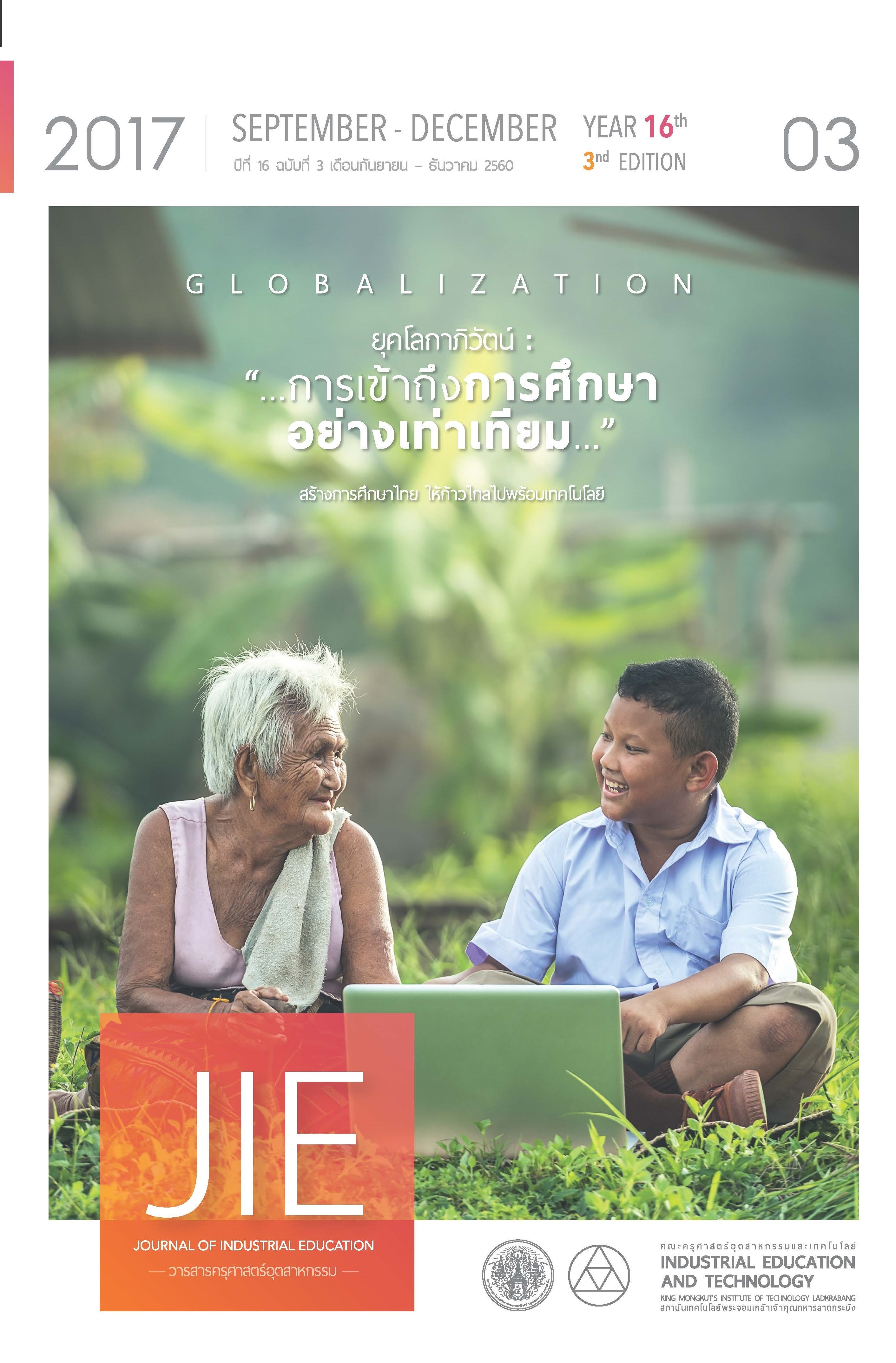THE DEVELOPMENT OF A STEM LEARNING MANAGEMENT SYSTEM ON SOURCES OF SOLAR ENERGY AND ITS APPLICATION FOR THE LEARNING AREA OF CAREERS AND TECHNOLOGY FOR MATTAYOM SUKSA 3 STUDENTS
Keywords:
STEM Education, Efficiency, Learning AchievementAbstract
The purpose of this research was to develop a learning management system on solar power and its applications in accordance with the STEM methodology for Matthayom Suksa 3 students and to determine its efficiency and find out the level of students satisfaction. The population of the study consisted of 20 Matthayom Suksa 3 students at Ban Huayplalod School, Mae Sot district, Tak province. The students were enrolled in learning of careers and technology in the first semester of the 2017 academic year. The research tools were a learning management system on solar power and its applications in accordance with the STEM methodology, and qualitative evaluation form of a lesson plan on STEM, and an achievement test. The statistics used for data analysis were mean and standard deviation. The results of the research revealed that the quality of the learning management system was at the good level ( = 4.13, S = 0.15). The efficiency of the learning management system was at 82.37/84.50, which was higher than the specified criteria of 80/80. Student satisfaction was at the most level (µ = 4.67, σ = 0.19).
References
[2] Varinporn Funfuengfu. 2019. STEM EDUCATION. Journal of Industrial Education, 15(3), p. 198-203.
[3] Suchard Punchard. 2003. Teaching problems of Careers and Technology primary 4 teachers in Phetchaburi province. Master of Education. Business Studies, Srinakharinwirot University.
[4] Pannee Leekitwattana. 2011. Educational Research Methodology. 7thed. Bangkok: Faculty of Industrial Education, King Mongkut's Institute of Technology Ladkrabang.
[5] Chaiyong Promwong Somchao Netprasert and Suda Sinsakul. 1977. Teaching media. Bangkok: Chulalongkorn University.
[6] Pannee Leekitwattana. 1997. Statistics for Research Measurement of Distribution Teaching Materials. Bangkok: Faculty of Industrial Education King Mongkut's Institute of Technology Ladkrabang. (Brochure).
[7] Pannee Leekitwattana. 1997. Statistics for Research Measuring Trends in the Central Teaching Materials. Bangkok: Faculty of Industrial Education, King Mongkut's Institute of Technology Ladkrabang. (Brochure).
[8] The Institute for the Promotion of Teaching Science and Technology (IPST). 2014. STEM Education. Bangkok: The Institute for the Promotion of Teaching Science and Technology (IPST) Ministry of Education.
[9] Pornsawad Songkhwae. 2015. Development of STEM learning units to enhance scientific literacy in the topic of preservation land and rock of Maehongson for Prathomsuksa. Master of Education, Curriculum and instruction, Naresuan University.
[10] Thanyalak Chareonpongtanakul. 2014. The teaching and learning of STEM Education in conjunction with the use of the CHROMOSOME GAME series on the inheritance Science Applied for 2 nd year Diploma students vocational college. Dusit Commercial College. [Online]. Retrieved from: https://pvca-ri.com/myfile/170116085741_1.pdf (October 18, 2016).
[11] Nassrin Besa. 2015. Effects of STEM Education Approach on Biology Achievement, Problem Solving Ability and Instructional Satisfaction of Grade 11 Students. Master of Education, Teaching Science and Mathematics, Prince Songkla University.
Downloads
Published
How to Cite
Issue
Section
License
"The opinions and contents including the words in papers are responsibility by the authors."
"ข้อคิดเห็น เนื้อหา รวมทั้งการใช้ภาษาในบทความถือเป็นความรับผิดชอบของผู้เขียน"



